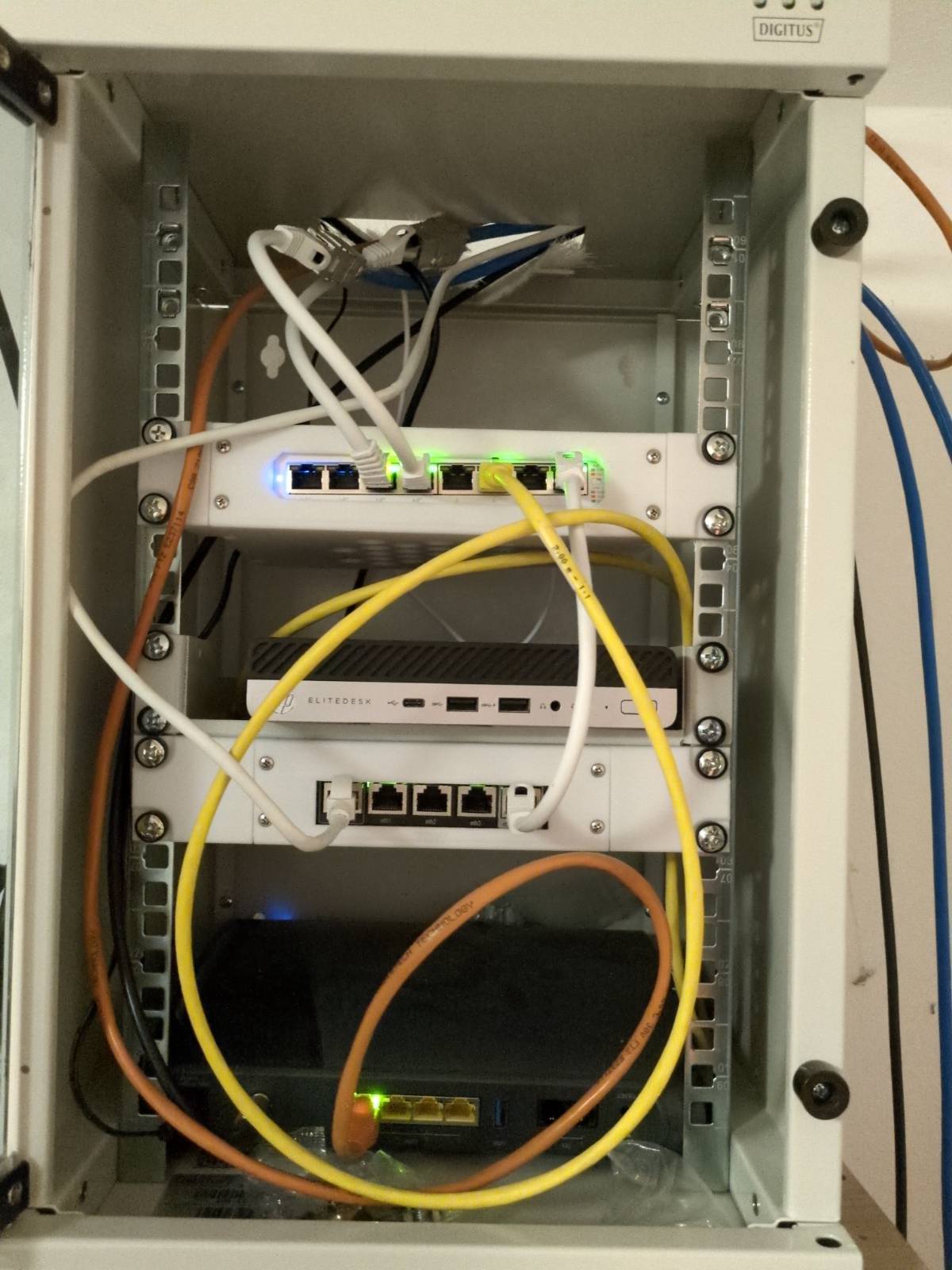
Small, 10 inch rack, with some 3D printed rack mounts.

Small, 10 inch rack, with some 3D printed rack mounts.
Maybe try some TLS-based VPN? This should work almost anywhere, because it looks like a standard HTTPS connection.
Wireguard - even on port 443 - is special as it uses UDP protocol and not the more widely used TCP protocol.
Does anyone need some old SCART, VGA, DVI, serial, parallel, USB type B, coax, RJ11 cables? And that’s only the stuff I know the names of.
No dad, YOU never know when you might need them. I know for sure that keeping charging cables and headphones with proprietary connectors will never again be useful.
I like it :) Can you provide a link to the sensors you used?


You‘re supposed to host this yourself.
Set the DNS cache time to 60 seconds.
Set the script to run on every host delayed by some time to avoid simultaneously accessing the API (e.g. run the script every other minute).
With this approach, you get automatic failover in at most 3 minutes.
I’d host it on both webservers. The script sets the A record to all the servers that are online. Obviously, the script als has to check it’s own service.
It seems a little hacky though, for a business use case I would use another approach.
If it’s a civil and interesting discussion, why not?
Your challenge is that you need a loadbalancer. By hosting the loadbalancer yourself (e.g. on a VPS), you could also host your websites directly there…
My approach would be DNS-based. You can have multiple DNS A records, and the client picks one of them. With a little script you could remove one of the A Records of that server goes down. This way, you wouldn’t need a central hardware.


This kind of spam is luckily pretty rare in europe, I get maybe one or two spam calls a year.
Many apps have “notification channels” (on android), to customize what notifications you get. You could choose to disable some notifications and keep others.
The worst are apps that send ads through notifications.
No, with these reasons:
I have a VPS for these tasks, and I host a few sites for friends amd family.
AFAIK, the only reason not to use Letsencrypt are when you are not able to automate the process to change the certificate.
As the paid certificates are valid for 12 month, you have to change them less often than a letsencrypt certificate.
At work, we pay something like 30-50€ for a certificate for a year. As changing certificates costs, it is more economical to buy a certificate.
But generally, it is best to use letsencrypt when you can automate the process (e.g. with nginx).
As for the question of trust: The process of issuing certificates is done in a way that the certificate authority never has access to your private key. You don’t trust the CA with anything (except your payment data maybe).
My HP has a 65 watt CPU built in, when it’s running at full load it is quite loud.